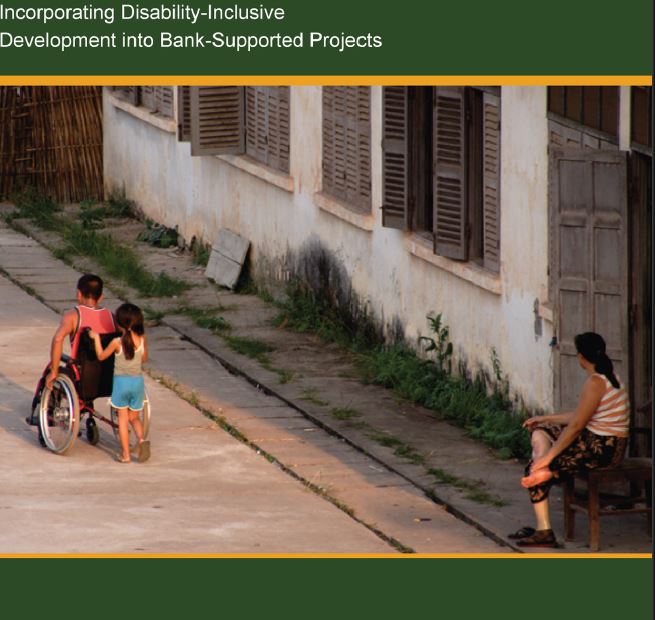Social Analysis and Disability: A Guidance Note. Incorporating Disability-Inclusive Development into Bank-Supported Projects
The World Bank is committed to improving the quality of social analysis and participatory processes in its projects. This commitment is reflected in the strategy document for Social Development in the World Bank, Empowering People by Transforming Institutions that presents three strategic priorities: improved macro level processes, better grounding through research and capacity building, and better projects, which means improved development effectiveness of investment lending through a more comprehensive and efficient mainstreaming of social development into project-level processes and analyses, as well as strengthening the social development thematic portfolio. As a means of systematizing this process, the Social Development Department has worked on developing guidance to Bank staff and clients on the application of social analysis and the integration of social dimensions within Bank operations. One outcome of this effort has been the Social Analysis Sourcebook (2003), which explores how Bank teams can assess the social context, and shows how governments and other stakeholders can undertake Social Assessments for specific projects. By explicitly addressing issues such as social diversity and gender, institutional norms and behavior, stakeholder analysis and participation, and social risk, projects are more likely to contribute to equitable and sustainable development. Social Analysis in the World Bank has expanded over the last decade from primarily focusing on adverse impacts and compliance with social safeguard policies (involuntary resettlement, and impacts on indigenous peoples), to a more comprehensive social development framework for Bank-supported projects and programs. Although avoiding and mitigating adverse impacts of development interventions remains central to our work, these concerns are now a part of a broader focus on opportunities, constraints and risk to development that arise from the social context. More recently, this transition from “do no harm” to “do good” also reflects the vision of the new Sustainable Development Network. While the focus of the Social Analysis Sourcebook is on incorporating social development issues into the project cycle, guidance is also offered on macro-level social analysis, including through Poverty and Social Impact Analysis (PSIA), which analyzes distributional impacts and the role that informal institutions, social relations, and power structures play in the reform process. At the country level, Country Social Analysis (CSA) informs the Bank’s portfolio, and provides inputs to the Bank’s Country Assistance Strategies (CAS), as well as to client countries’ Poverty Reduction Strategies (PRS). As a follow up to the Sourcebook, the Social Development Department is producing a series of sector- and theme-specific guidance notes for social analysis. The purpose is to ensure that advice related to social development issues is relevant and timely, addresses the key social concerns and opportunities in particular sectors, and is well integrated into the project cycle at all stages. The notes also discuss policy and institutional aspects of particular sectors. These aspects may in some cases be addressed through other instruments than projects, such as country-level policy dialogue, or Development Policy Loans.
